#english majors
Text
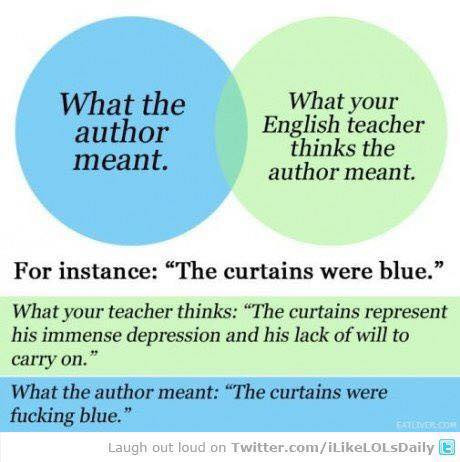
What majoring in English was like.
153 notes
·
View notes
Text
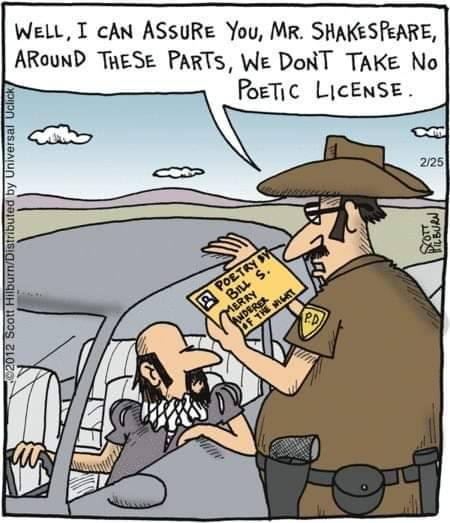
332 notes
·
View notes
Text
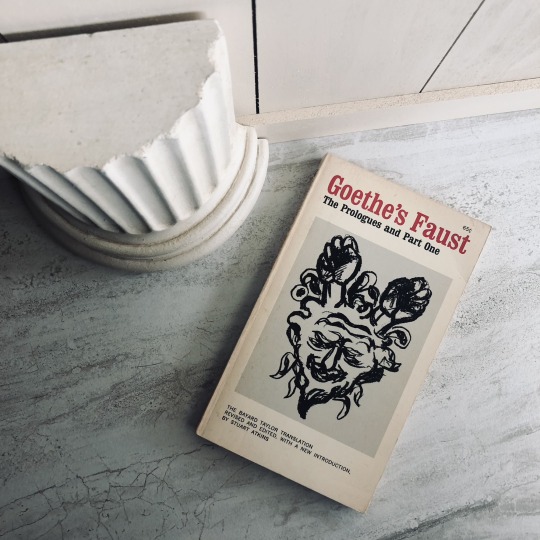
Goethe's Faust
This is 1 of 12 vintage paperback classics that comprise our current giveaw@y.
103 notes
·
View notes
Text
things i’ve heard english majors say pt. 16
-I need to print out my plot outlines single-sided because flipping them is driving me nuts, why can’t I shut the fuck up and write anything less than 42 chapters plus a 9 character pov epilogue
-I don’t think I could ever be drunk enough to write a YA novel
-I can’t ghost him, a character based on him is half of the story that I’m writing
-me having to check if I’ve already used to word “immortally” in every nonfiction essay I’ve ever written
-“it’s living too much outside the poem” just say its too vague or too ambiguous, you slut
-mmm, the “always” kind of love. Tasty.
-his father used to hit him and his favorite authors are all 19th century Russian men–of course he’s not a virgin
-nothing like bad movies that make me want to write
-my face would look a lot more panicked if I was doing math right now
-discussing serif typeface until i start internally bleeding
-oh she said enjambment, she said utilizing white space
-oh it ends with a period. That's a choice.
-nothing more confusing than walking onto the bus on Thirsty Thursday while listening to the Downton Abbey theme
-if anyone in the communications building sees me half bent over, clutching my head with both hands and slightly shaking, no you didn’t and this is actually pretty normal behavior
-it was “best friend’s younger brother” but now it’s “my best friend’s younger bitchass playboy cousin who left me on delivered for 8 days and who I met exactly once and now I’m living near him because we hate the country we come from.” It’s called diversity.
-I’m writing my poli sci essay
Sick, I’m writing the epilogue for book 3 when I haven’t finished book 1 or properly plotted book 2
-literally no inconvenience is too small for me to lose my mind over
-I don’t want to change the world, that sounds like a lot of work. But if I write something that inspires someone with a lot more initiative to change the world for me, that would be real great
#still tagging this as shit i've heard high schoolers say#college#college humor#college memes#college problems#college life#student life#student humor#student memes#student problems#school humor#school memes#English majors#writing#writing prompts#creative writing#studyblr#gen z#gen z life#gen z problems
537 notes
·
View notes
Text
My sister and I were discussing Muppets Moby Dick
So far we have decided Ahan would be the human cast member. Kermit would be Ishmael and Miss Piggy would be Quequeg.
But I'll open it up to the class.
Our most important question so far is
Who plays the whale?
36 notes
·
View notes
Note
Hi, fellow English major here! Sorry if this is personal - are there any career paths you’d recommend? I’ve thought either journalism or academia (might do a masters for either!) though I’ve heard college teaching is now super precarious.
Well tumblr just ate everything I wrote. Grr.
This is a bit of a hard question to answer and it's really complicated, without knowing why you're into journalism or why you're considering teaching. I don't know a whole lot about these fields, but what I do know is that they both involve research, collaboration, writing, the day-to-day is different, and you have to be kinda peopley. If that sounds like you, then some other options to look into would be research, analysis, or librarianship.
Higher ed/college academia is...going through some things right now. (I've got friends in that world.) It's largely down to two things - one, culture wars and two, the demographic cliff. I don't want to discourage you from that if that's where your heart is, but it's going to be a difficult ride. Tenure isn't a guarantee anymore, you might have to move around more than you've expected, budgets are getting tighter and they're coming with a million more strings, and hiring is a bit stagnant. The message I hear from my higher ed friends is that if you want to go into higher ed or academia, you better make sure you're doing it for the passion, not the tenure or the paycheck.
And grad school. Only go if you're absolutely entirely 100% certain you need that master's to get the career you want. The economy being what it is, the interest rates being what they are, costs and fees being what they are, how fast and quickly certain fields are changing because of tech, I don't know that the value is there anymore if you're on the fence or you're doing it because it's what you're supposed to do. Grad school will still be there in a few years so you can always go back to school.
If you're open to a more broader perspective of the English major's postgrad experience and advice, then
In this essay I will give you a nonanswer answer in three parts:
What do you like about studying English? Why did you choose English in the first place?
It's not about the English lit. It's about the soft skills.
In the end, it doesn't actually even matter.
Colleges, universities, career offices, and departments really struggle with career advice and career planning. They only know what they know, right, so they have a tendency to promote the obvious career paths because that's what their experience is -- English majors go into academia, history majors go into museums, pre-med majors go into medicine, etc. However, that's just one option. I think it's harder for these folks to know what's really out there because they're just not familiar with it, and that's why they rely so much on their alumni to fill in the gaps but it still leaves students in the dark having to find their own way out. (I do think it's changing, though. My friends in higher ed said that there's a lot more focus "beyond the classroom" to prepare students for the real post-college life and more diverse careers.)
So let's get into it.
What do you like about studying English? What made you choose English in the first place?
Is it the reading? Do you like the debate and discussion? Is it the creative process? Do you like writing? Do you like the analysis? The research? If you narrow down why you like English, it can be super helpful finding "non-traditional" career paths.
For example:
If you like reading, then look at publishing or editing.
If it's the creativity or the creative process, then consider marketing or advertising.
If you like the discussions and debating plot points, maybe you're a lawyer.
If you like the community of book world, then maybe you're a bookseller or a librarian.
If you like writing and the writing process, definitely look into journalism, but there's also content editing, communications, technical writing, ghostwriting, food recipe writing, etc.
If you like analyzing literature, look into being an analyst.
If it's the research, go into research or research librarianship
And remember, these are just super broad and high-level career paths. Within each career field, there's a million different options to narrow it even further. Like librarians or writers or advertising.
It's not about the literature. It's about the soft skills.
Colleges and college students often think that the only career options they have are the ones that deal specifically in the hard skills their coursework studies - English majors become writers or teachers, history majors become historians, geography majors become geographers and mapmakers. But the reality is that the people who do exactly the work that their major studied are few and far between. Most of us end up with careers that have nothing to do with what we studied. For instance, in my friend group (there's about 9 of us) only one actually does the specialty he studied for - he has a physics degree and he does physicsy stuff for a lab. The rest of us are all over the place, like
the Chemistry major now does IT sales.
the Geography major is the International Studies director for a midsized university.
the French major is an accounts manager for a higher education consulting firm.
And it's all about the soft skills. Those are what set us up for success. Off the top of my head, these are the soft skills you're practicing in your English major coursework:
Reading and reading comprehension
Writing
Writing for different audiences (eg. you know Professor X is really into symbolism so your papers for his class will focus on symbolism, which is different from Professor Y who wants you to talk about literary theory, which is different from Professor Z who's obsessed with victorian panopticism so you know you need to include Foucault and -- shoot, that's my PTSD escaping.)
Analyzing different kinds of information and knowing the methods/tools (for instance, analyzing poetry is very different from analyzing scientific research)
Doing research (knowing how and where to find information)
Vetting sources
Speaking about and defending your work
Taking, incorporating, and giving feedback
Working on deadlines
Collaborating with people
Attention to detail
Organizing information
And guess what? This is the day-to-day work that all of us do in our careers. These are the tools necessary for success in pretty much anything: project/program/product management, sales, consulting, contracting, IT, business, HR.
So if you're having trouble finding work in a classically English field like journalism or academia or you can't figure out if you're qualified for a position, use these soft skills. If they show up in the description of duties/responsibilities, you're qualified! Apply! Don't focus too much on the job title or the company.
Take Kate for an example. Her degree is in art history, but she's never worked in a classical art history field - i.e., she's never worked in an art museum and she isn't having conversations on Remembrandt vs Van Gogh. But she is using her degree anyway - her attention to detail and her research skills means she shows up prepared every day, her knowledge of color theory means the photos she gives us of her family and their appearances are pleasing to look at, she can communicate easily to different audiences (eg outdoorsy clothes and casual attitude for Scouts vs coatdresses and formality for Westminster Abbey).
In the end, it doesn't actually even matter.
It really doesn't. Particularly for a humanities major, the more you lean into your soft skills, the easier it'll be to find a career path that works for you. Some examples...
If you like working with people, you love organizing things, and your attention to detail is *chefs kiss*, you might be a project manager and project managers are everywhere.
If you like writing, talking to people, and you're a planner, maybe you're a communications specialist or a speechwriter.
Maybe you like writing and you like doing research, but you don't want to go to grad school, look at becoming an acquisitions specialist or a contracting officer.
If you're into language and linguistics, maybe you're a book translator or an interpreter. (Just don't work with Omid Scobie!)
This is where I think college advisors struggle. They tell students to be open to possibility, but they don't tell you what possibility is. I remember going in for career advising and the conversation went something like this:
Me: I don't want to teach but I like writing and research. What can I do?
Dr. S: You can do anything you want!
Me: What does that mean?
Dr. S: You don't have to teach! You can do whatever you want!
Me: BUT WHAT DOES THAT EVEN MEAN.
(Dr. S was later fired for drunk driving with students in the car so...she probably wasn't the best person for the department to appoint as the career advisor. Or Department Chair.)
It took me until about two years ago to realize what Dr. S meant by "you can do anything you want." She (and a lot of the people at my university) just didn't know how to explain what they meant. I think part of that is because "soft skills" wasn't really a thing a lot of people were talking about 10, 15 years ago outside a corporate environment, and it does seem to be changing now, and universities have begun teaching and showing students how to connect coursework, sports, clubs and student activities, and volunteering to soft skills and "business"-minded concepts.
Just be open to considering career paths that aren't traditionally lit-focused, like business or IT. It'll be the soft skills that set you apart and help you be successful, not how well you can you can argue symbolism or read seventeenth-century poetry or recite Shakespeare. Leave it for your hobbies.
So here's an example of what I mean by being open to other career paths. As I mentioned before, I do have a B.A. in English and my focus was modern American fiction. I went into college thinking that I'd be a writer or do something in movies - I was going to be either the American JK Rowling, the millennial Meg Cabot, or the female Aaron Sorkin. (Reader, I was not and will never be.)
But in reality, I had no idea what I wanted to do. I looked into publishing, high school teaching, college professorship, creative writing, scriptwriting, but nothing was panning out. Eventually I signed up for a summer internship program with the federal government (my parents were feds) thinking "at least I'll get my internship credit and know what NOT to do". The internship ended up being with a research library, I absolutely loved it, decided "this is it, I'm going to get my MSLIS and be a librarian and do research and write research papers forever!" (MSLIS is Master of Science in Library and Information Science). They invited me to come back again the next summer, which I accepted, and my dear amazing supervisor (let's call her "Marian") somehow convinced the bosses to pull me on full-time when the internship ended and to support my grad school coursework.
Went directly from undergrad to grad and hated it. 15 years ago was an interesting time in the library world; it was right when the field transitioning from information to data so it was less about working with research and more about organizing and using data. In effect, it was moving away from the world of books/information ("Englishy" type stuff) and moving fully into the realms of data and computer science. Not what I expected and for someone who was on the research librarian track, having to take classes on data analysis, computer science, website management, and HTML coding, it was torture. But that was where the industry was going so get on board or drop out. Meanwhile, the research library I was working in was also changing. We were changing from being a library and doing research to being a repository of databases and facilitating access to research. The bosses got wind that I was looking to jump ship and said:
"She's got a really weird brain full of really random stuff but ask her a question about something she looked up 3 years ago and she can remember exactly what it was, where she found the information, how it applied to whatever you need, and the exact notebook she wrote it down in. She knows how to get information from people so let's make her a sub-project manager on this new database tool with Bob to see if she's as good as Marian says she is and maybe we can steal her from the librarians because they're all retiring soon anyway." (I'm paraphrasing here but yes, they specifically wanted me because I have a crazy attention to detail.)
So I abandoned the librarians (they were all retiring anyway and were like two resignations away from reorganizing the department), went over to the IT side to become a project manager and one month into the project with Bob, Bob was in a horrible car accident, had a severe TBI, and ended up taking medical retirement because his recovery was going to be years long. (Bob's okay now. I had dinner with him last month.)
I did not get a new PM to shadow or partner with. I was left to do the whole thing on my own with a senior devops team who didn't like that a no-nothing 24 year old kid was in charge of them. But it all worked out in the end. I earned devops' loyalty, we had fun, we impressed the client, the bosses were happy and I found that I really liked project management and even better, I was really good at it. I did that for ten years, until one of the bosses who'd left about four years prior (and with whom I still kept in touch, who knew I didn't like the techy database stuff they kept pushing me into) said "psst, hey, come work for me" and I said "can I start tomorrow."
So very long story short, being open to possibilities is how I ended up a) working for the federal government, b) falling into IT and project management, and c) now doing policy analysis and program evaluation. I didn't even know English majors could do this kind of stuff 15 years ago. I thought you had to have business degrees for all this.
What I mean is you don't need to abandon your interests in journalism and academia. If that's what you want to do, you go girl (or guy or they) - all the English majors are here rooting for you. But if you're not sure, don't close yourself off from the non-traditional English career paths.
And also don't worry too much about it. You'll find what you were meant to do, whether you figure it out right now or it takes you 4 years and grad school or it takes you 10 years.
Maybe you do go into journalism, and it's not for you. Dust off your list of soft skills and polish your resume and go find your next step. Or maybe you go into academia, realize you don't like teaching, but hey, that job in Student Affairs looks interesting -- go for it! What have you got to lose?
You probably weren't expecting another literal essay on this, so my apologies for that. But in my defense, I did say it was a complicated question to answer!
Please, feel free to ask more questions! I promise to try to be less long-winded. (No guarantees, though.)
Also a tip about resumes. I am horrible at writing resumes but I found this incredible tool called Jobscan.co. You upload your resume and the job listing you're applying to, and then it compares them and flags things in your resume based on the job listing and suggests tips to improve. It's based on the same ATS optimization technology that real hiring managers use to screen their applicants.
15 notes
·
View notes
Text
I'm glad we As a website have decided that "English Major" a recognizable and common gender. Like:

Obviously, Aziraphale
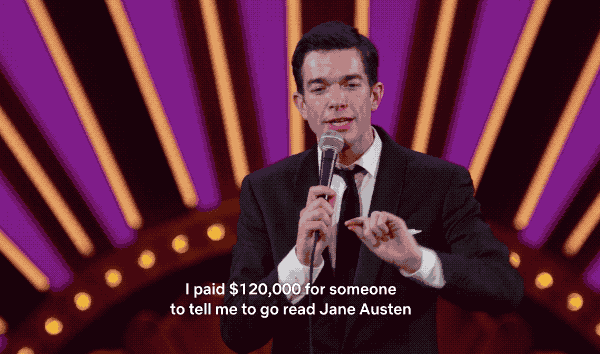
Mr Mulaney
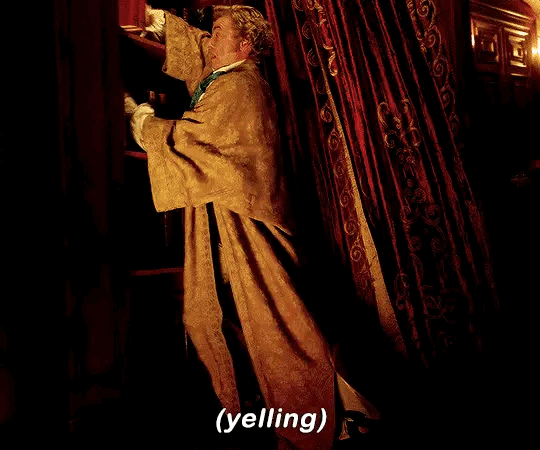
Stede

Hermione
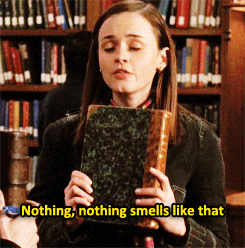
Rory
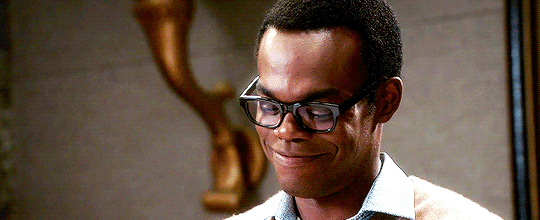
Chidi I haven't even seen this show but ur tryin to tell me he doesn't read Oscar wilde for fun?
Like I know there's more but it's just wonderful
Whatever the hell Tolkien had going on just created a new gender and we took it and ran with it.
Please add on to all the ones I know I've forgotten.
Edit: I see now that I made a grammar mistake in the first sentence about my English Major post.
#english major#Aziraphale#john mulaney#stede bonnet#hermione granger#rory gilmore#chidi anagonye#good omens#ofmd#fuck hp but#harry potter#gilmore girls#im so proud of us#three genders#stem majors#english majors#and business majors#edit tags: i have covid and have such a weird ass brain fog that i told my roommate i was hungry and needed food#immediately after putting down the food i had half eaten
12 notes
·
View notes
Text
is it worth reading hp lovecraft? im asking bc i’m interested in his work but am aware of his racism and the controversy of his work. so i want to know if i should read any of his work, if yes, which ones do i start with and if not, is there similar authors i could read for that eldritch horror vibe?
#books#hp lovecraft#horror#eldritch horror#literature#calling all#literature majors#english majors#book tumblr#library#reading#american literature
10 notes
·
View notes
Text
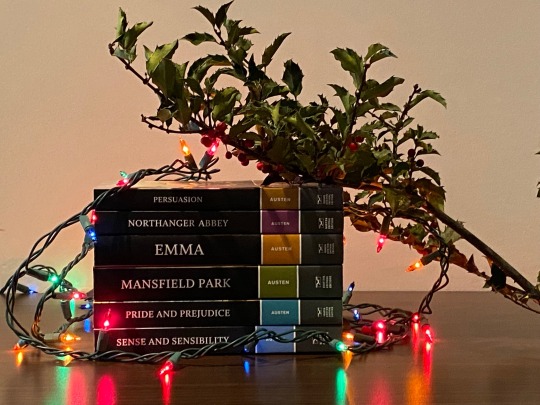
In honor of Jane Austen's birthday today, what's your most controversial opinion about her books? Do you hate Mr. Darcy? Is there a movie that's better than the book? Let the people hear it!!
#Jane Austen#Women writers#literary birthday#today in literary history#happy birthday#British Literature#English literature#Brit Lit#English Lit#English majors#women in literature#Persuasion#Northanger Abbey#Emma#Mansfield Park#Pride and Prejudice#Sense and Sensibility
54 notes
·
View notes
Text
shout out to my english major friend who smacked me when i said The Good Place is just our great grandkids Dante’s Inferno
#she did not like that interpretation#especially since i’ve never read it#the good place#tgp#dante’s inferno#classic literature#english majors#personal
10 notes
·
View notes
Text
Here's a question for weirdo linguists like me:
4 notes
·
View notes
Text
All are excellent. Here a small taste:
1. If your story opens with a dream sequence, it must end with one as well.
2. Drafts often suffer from characters defaulting to the four S’s: smile, stand, sigh, and stare. If you come across these moves in your fiction, excise and reconceive.
3. Your writing should embarrass you at least a little bit. If it doesn’t, you haven’t written anything of substance.
4. Don’t write about love until you’ve had your heart broken. And sadness is not heartbreak; heartbreak is heartbreak.
5. Emojis… Sure. I guess.
3 notes
·
View notes
Text
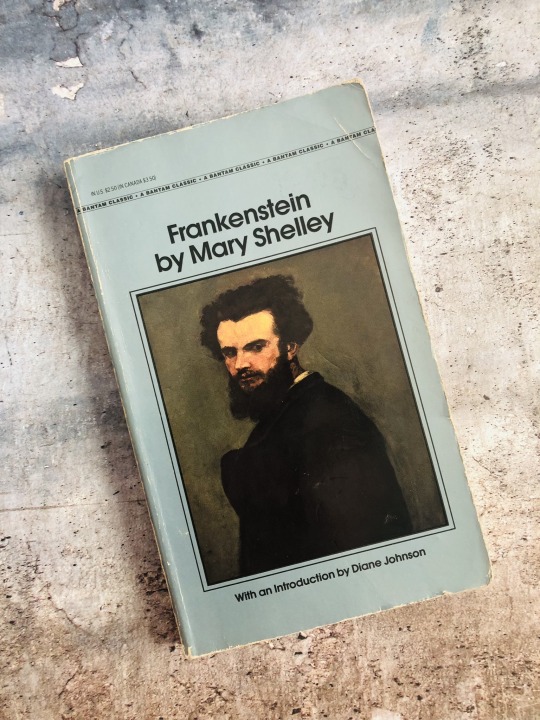
Frankenstein
Mary Shelley
FYI - this is 1 of 12 vintage paperback classics that comprise our current giveaw@y.
72 notes
·
View notes
Text
things i’ve heard english majors say pt. 17
-not capitalizing I’s in poetry was a moment in tumblr history but that moment is gone and we don’t have to do that anymore
-have you ever killed off a main character in any of your stories?
Like physically?
-I’m almost done with this stupid discussion post and then I’m gonna go for a stupid walk before I make any more stupid decisions about my stupid life
-I read over 55 poems for the lit mag and I read 46 pages of an 18th century diary for my American revolution class and yet the most productive thing I’ve done today is adding “Scarborough” to my list of name for future pets
-what’s my specialty? Prose-poetry nonfiction vignettes about the generation z experience
What the fuck?
-go to class, just don’t run into a guy who you ask to be the father of your children on the way there
-we’re running on poet time, so the event is gonna go late for sure
-killing off a main character is so original that it’s unoriginal. Living people can make you cry too, John Green and Suzzanne Collins and me
-I’m all concept, no practicality
-someone pry the word slay from my cold dead hands
-I don’t know why I like poems that are, like, gross
-not to be a prude but I would have liked the poem more if it was in a more traditional format
-most shitty poetry of this era can be traced back to the grip that milk and honey had on us for a good year there
-this piece looks like it was mauled by a thesaurus
-don’t look at me using slash marks in a poem it’s a stylist choice and it isn’t cliche yet
-I can hardly keep living at all, in any condition
-I’ve been at college for two and a half years, I know how to bullshit for 10 pages
-I changed what I was going to read six or seven times since we started this open mic–
*deafening* MOOD
-ugh, is it really necessary to submit portfolios for job positions with literary magazines?
Everyone: YES
-yeah, Buzzfeed used to be into deep long-form journalism. And now it’s not.
-hey, there’s no mirrors in your apartment
Well duh
-honey, I’m an English major with minors in political science and American studies, critiquing the American Dream is what I do
-English majors love to read right that’s what we all say even though we don’t
-I should really go get a green-colored juice so I eat a vegetable
-the idea of a very hungry spider patrolling our house is terrifying but also like. Kind of on brand for us
-I titled my creative nonfiction collection “The Hauntings and Homelands of One-Cent Treasures” and I need you to be proud of me that I came up with a title at all
That’s literally so sexy
-if you tell the teacher that it’s my turn to talk, I will kill myself in front of you
Don’t do that, then I’d have to write a poem about you
You’re welcome
-don’t you get free tuition if your roommate kills themselves?
Is that written down somewhere?
-are we all just unstable then?
We’re creative writing majors, there’s some sort of preamble there to not be okay
-an undergrad never asks for permission. We walk into rooms and say we should be here
#college#college student#still tagging this as shit i've heard high schoolers say#college life#college humor#college memes#college problems#school memes#school humor#student humor#student life#studyblr#gen z humor#gen z problems#gen z life#writer problems#writing#writing prompt#english majors
152 notes
·
View notes
Text
Are you really an English major if you don't spend 90% of your free time writing various fanfictions?
7 notes
·
View notes
Text
The English Major Will Not Die
While stocking the Newsstand at Barnes & Noble, I came across a front page of the New Yorker cover that reads “The End of the English Major by Nathan Heller and my first thought was “No, it doesn’t have to be.” Reading further, I saw that the study findings sourced in the article were based on Arizona State University’s falling enrollment rates into the English Major prerequisite courses, among…

View On WordPress
2 notes
·
View notes